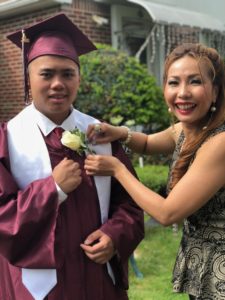Historically, schools have been a major source of referrals for guardianship.
Through running our pilots, providing training and technical assistance, and consulting with educators, we have seen a pattern. When children with intellectual and/or developmental disabilities approach 18 years old, the default advice from school districts is to obtain a guardianship. While some of these referrals may be appropriate, this should not be the default option. Too frequently, guardianship is presented as the default path when a child with an intellectual or developmental disability approaches adulthood and less restrictive interventions are not considered. Because transition to adulthood is a complex time where parents, families, and guardians of minors are overloaded with information a discussion of alternatives to guardianship often gets glossed over in favor of the well-trod familiar path: guardianship. We have seen the results: people end up under guardianship at 18 due to a school district’s advice who could have thrived by using a less restrictive option.
This is the “school-to-guardianship pipeline.”
School-to-guardianship pipeline
There are a number of moments when this pipeline can be disrupted:
- during the transition planning process and
- at Individualized Education Plan (IEP) meetings where there is frequently discussion of guardianship.

Our vision is:
- that school district transition specialists are as well-versed in supported decision-making principles as they are in guardianship
- that parents, minor guardians, and children with disabilities who are given information about guardianship ALSO receive equally robust information about supported decision-making
- that youth have the opportunity to try supported decision-making to see if it is a viable alternative to guardianship in their lives
- that guardianship is no longer the default option when youth reach 18
Our supported decision-making training and pilots seek to disrupt this pipeline through education, training, and technical assistance.
If you know of an opportunity to conduct training at a school or for people working in transition, please get in touch.

